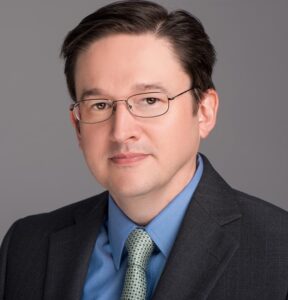Construction Law: NLRB Rule
New Rule to Impact Construction Industry Collective Bargaining & Other Issues
by Trent Cotney, partner, Adams & Reese, LLP

(Editor’s Note: Trent Cotney, partner at Adams & Reese, LLP, is dedicated to representing the roofing and construction industries. Cotney is General Counsel for the Western States Roofing Contractors Association and several other industry associations. For more information, contact the author at (866) 303-5868 or go to www.adamsandreese.com.)
In early November, the National Labor Relations Board (NLRB) announced a new rule to address election-blocking issues, voluntary union recognition, and collective bargaining relationships in the construction industry. If adopted, this rule would replace the April 2020 rule currently in effect.
What the Current Rule Allows
The April 2020 rule permits three practices that the new rule calls into question:
1. Representation elections are allowed to continue even when unfair labor practice claims are pending and such charges allege coercive actions that interfere with employee free choice.
2. Challenges to a union’s representative status are allowed if that union was voluntarily recognized based on majority support from employees, even before a reasonable time for collective bargaining.
3. Challenges to the status of unions representing construction employees are allowed even if the collective bargaining agreement shows evidence that the employer recognized the union voluntarily since there was majority support.
What the Proposed Rule Presents
The Fair Choice and Employee Voice rule would revert to the NLRB law that was in effect before 2020. It included the following:
1. Long-standing principles demonstrated in the blocking charge policy that the NLRB first adopted in 1937.
2. A voluntary recognition bar doctrine that the NLRB first established in 1966 and solidified in Lamons Gasket Co., 357 NLRB 934 (2011).
3. Voluntary union recognition in the construction industry as the NLRB has illustrated in Casale Industries, 311 NLRB 951 (1993) as well as Staunton Fuel and Material, 335 NLRB 717 (2001).
The proposed rule has three sections that directly address the previous law’s provisions, as listed above.
1. It would return to the long-established blocking charge policy, which was reflected in a 2014 rule. With this approach, the election can be delayed if unfair labor practice charges are filed when an election petition is pending. A regional director may take such action if the alleged practices could interfere with employees’ free choice. The NLRB asserts that this policy not only promotes employee free choice but also prevents the board from wasting resources on an election that might have to be re-conducted.
2. It would remove the required notice-and-election procedure resulting from an employer’s voluntary recognition of a union based on majority support among employees. The NLRB argues that it is better to prevent challenges to a newly recognized union’s status until a reasonable time for collective bargaining has passed. It states that this approach supports employee free choice, advances and encourages collective bargaining, and preserves the stability of labor relations.
3. It would return to the NLRB’s earlier approach to voluntary union recognition in the construction industry. This process would restore a six-month limit for election petitions that challenge a construction employer’s voluntary union recognition. It would also support the stance that specific language in a collective-bargaining agreement can be adequate evidence of proper voluntary recognition. The NLRB claims that the April 2020 rule introduced uncertainty to construction-industry labor relations.
NLRB Chair Lauren McFerran explained the proposal this way, “The Board believes, subject to comments, that these proposed changes will better protect workers’ ability to make a free choice regarding union representation, promote stability in labor relations, and more effectively encourage collective bargaining.”
Board members David M. Prouty and Gwynne A. Wilcox joined McFerran in proposing this new rule. Board members John F. Ring and Marvin E. Kaplan dissented.